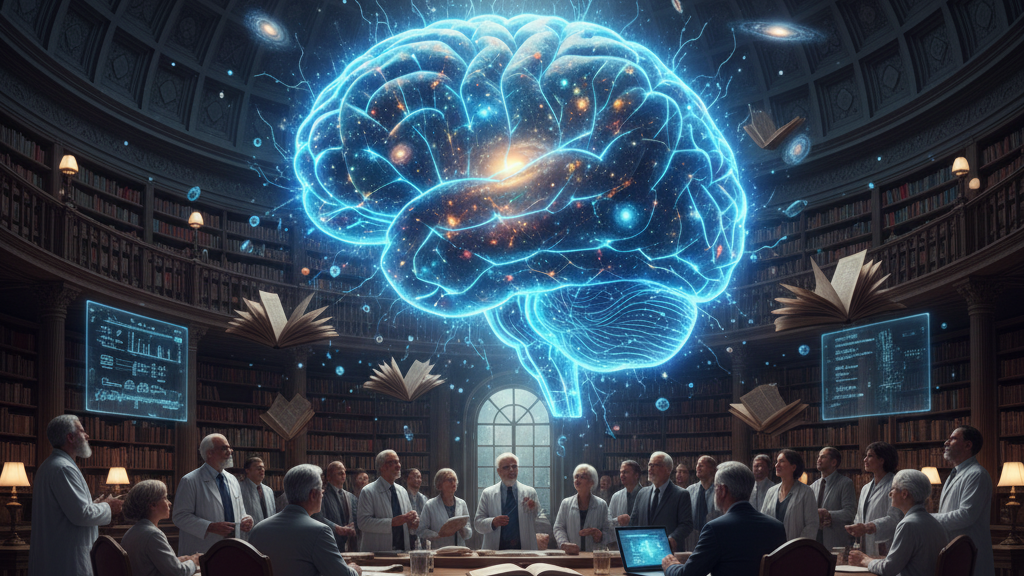
Source
Harvard Gazette
Summary
Blaise Agüera y Arcas challenges the framing of AI as “artificial” by showing how human brains and artificial systems share computational principles. He argues that brains evolved to compute—processing inputs into predictive models—and that evolution’s growth in complexity was powered not just by mutation and selection, but by cooperation (symbiogenesis). According to Agüera y Arcas, when organisms merge or cooperate, their computational capacity can scale in parallel, a pattern mirrored in how AI systems evolve. He explores the intimate parallels between biology and machine learning as he situates life itself as computational from the start.
Key Points
- Agüera y Arcas asserts that human brains are literally computational, not just metaphorically so.
- Evolutionary complexity involved more than selection—cooperation and symbiosis (symbiogenesis) were crucial.
- Brains and AI both operate through prediction: transforming inputs into outputs via internal models.
- When systems cooperate (whether biological or synthetic), they achieve parallel computation and greater complexity.
- The article bridges notions of life, computation, and intelligence—arguing the boundary between “natural” and “artificial” is less clear than often assumed.
Keywords
URL
https://news.harvard.edu/gazette/story/2025/09/artificial-intelligence-may-not-be-artificial/
Summary generated by ChatGPT 5

